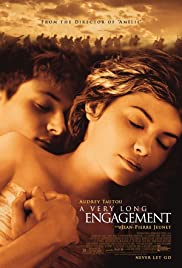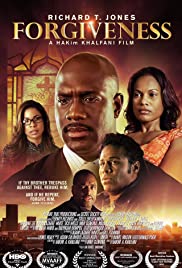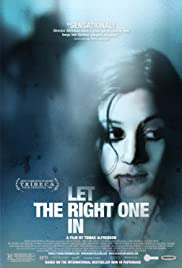
Two cross-town rival dance teams go head to head for the National Nationals Championship.
You May Also Like

The end of Trajan’s Dacian Wars (106 AD), when south western Dacia was transformed into a Roman province: Roman Dacia.

In 1919, Mathilde was 19 years old. Two years earlier, her fiancé Manech left for the front at the Somme. Like millions of others he was “killed on the field of battle.” It’s written in black and white on the official notice. But Mathilde refuses to believe it. If Manech had died, she would know. She hangs on to her intuition as tightly as she would onto the last thread of hope linking her to her lover. A former sergeant tells her in vain that Manech died in the no man’s land of a trench named Bingo Crepescule, in the company of four other men condemned to die for self-inflicted wounds. Her path ahead is full of obstacles but Mathilde is not frightened. Anything is possible to someone who is willing to challenge fate…

In Bucharest on a winter’s morning, a couple make love. Adina wants to move in with her boyfriend Radu as soon as possible. He, on the other hand, is slightly more reluctant but appears to simply tolerate her plans. Today is New Year’s Eve and Radu and Adina have a lot to do: the two have planned a visit to Adina’s parents followed by a party with friends. While buying last-minute gifts at the supermarket, Radu thinks he spots ex-girlfriend Nadja, who he has never forgotten. In one small moment, Radu’s insecurities about Adina come bubbling to the surface. No sooner have the corks begin to pop, the relationship comes to an abrupt end. This is followed by the perfectly timed offer from Radu’s friend Alex to hit the town with him and his friends. Radu accepts the offer in the hope that Nadja is also out. Director Paul Negogescu draws a portrait of Radu with precision and subtle irony – and captures the atmosphere of a New Year’s evening with great authenticity.

Uptight and straight-laced, FBI Special Agent Sarah Ashburn is a methodical investigator with a reputation for excellence–and hyper-arrogance. Shannon Mullins, one of Boston P.D.’s “finest,” is foul-mouthed and has a very short fuse, and uses her gut instinct and street smarts to catch the most elusive criminals. Neither has ever had a partner, or a friend for that matter. When these two wildly incompatible law officers join forces to bring down a ruthless drug lord, they become the last thing anyone expected: Buddies.


Two anarchistic brothers live by petty thievery and try to recover from their Catholic upbringing. Bandiera and Rabbino were children when they pushed their drunk of a father out of a window for killing their pet sheep. When a girl is raped by her father, she is brought by young “rescuers” to the home of the two brothers who then watch their friends take advantage of her sexually. The brothers take her in, and the three live happy and celibate if not uneventful lives until the brother’s are sent to jail for stealing.

As stated in the opening titles and at the end Freakstars 3000 is supposed to be a commentary on the problems of the non-disabled people. The more I was shocked about how the disabled were depicted in this film the more I started to realize that in every non-disabled TV counterpart of this show (German TV shows like “Popstars” or “Friedmann” or the home shopping channels) its mentally “non-handicapped” participants are treated in a completely identical way: The total prostitution of the mind in front a huge TV audience at the expense of one’s most important gifts one should hang on to: dignity. On the other hand one could completely understand people who are furious about “exploiting” these handicapped persons. But that’s what Schlingensief’s works are all about: shock people and don’t care about those who cannot or will not try to get the message (if there is one).

If a man trespass against you, rebuke him. If he repents, then forgive him.

Set in 1982 in the suburb of Blackeberg, Stockholm, twelve-year-old Oskar is a lonely outsider, bullied at school by his classmates; at home, Oskar dreams of revenge against a trio of bullies. He befriends his twelve-year-old, next-door neighbor Eli, who only appears at night in the snow-covered playground outside their building.


October 1941. Eighteen months into France’s occupation by German troops, young Communist members of the Resistance shoot dead an officer of the German Army. In retaliation, Hitler demands the deaths of 150 Frenchmen, as ‘retribution’. The targets are to be mostly young men believed to share the assassins’ political convictions. Most of these men are taken from an internment camp for opponents of the occupation; a 35-year-old French rural administrator is ordered to select the victims. Although the parish priest appeals to their conscience and moral sensibilities, both the German military and their French helpers slavishly follow their orders.